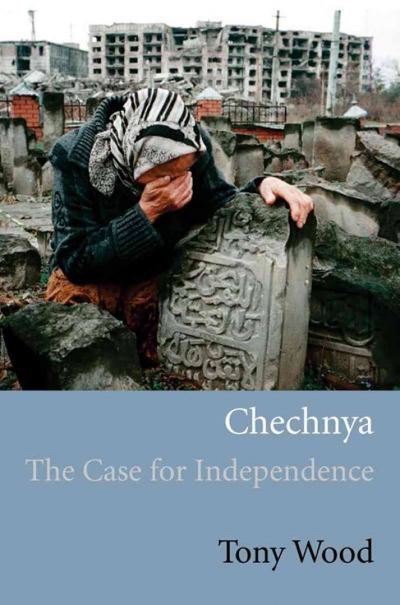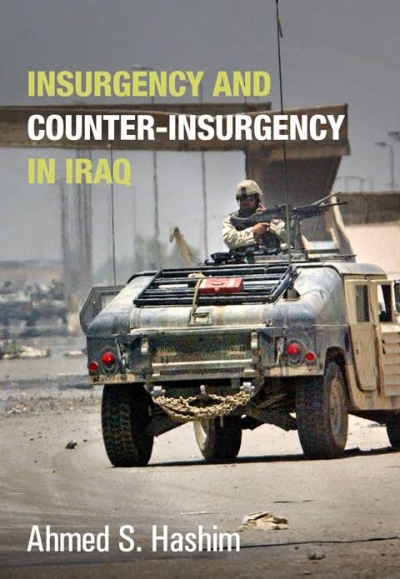



Months of increasing tension between the Fatah and Hamas movements in Palestine came to a head on June 14, when Hamas militias captured Fatah-controlled institutions in Ghazzah that had refused to accept the authority of the Hamas government of prime minister Ismail Haniya. Palestinian president Mahmoud Abbas responded by dismissing the Haniya government and appointing a new administration, under Salam Fayyad, in Ramallah, in the West Bank.
Last month’s developments in Palestine are no great surprise. Basically, we have seen a political coup by an established, pro-Western political elite against a popular Islamic movement that was growing in power and credibility, and threatened to take a Muslim people and country in a direction unacceptable to Washington and Tel Aviv. The fact that this particular coup has taken place in the particular circumstances of zionist-occupied Palestine, rather than in one of the many Muslim nation-states where similar events have occurred, should not distract from that fundamental reality
That the world is a nasty place is not in doubt; what is seldom admitted is the depth of the plight of the oppressed, especially Muslims, and the level of hypocrisy that passes for the rule of law and international order. The militarily powerful oppress and terrorize the weak under the guise of fighting “terrorism”, while the rich exploit the poor in the name of progress.
It would be wise to infer that the latest visit of Ehud Olmert, the prime minister of Israel, to Washington is meant to fuse zionist and imperialist objectives even further vis a vis Islamic Iran. We can read what the mainstream media, ever the servants of the imperial-zionist nexus, have left out of their reports; i.e., the top echelons of both the political and military establishments in Tel Aviv and Washington are finalising their plans for the only government in the world that is close enough to Israel to defy its expansionist schemes.
June turned out to be a month of speeches and conferences for this writer. It began with Imam Khomeini memorial programmes in the UK. These were followed by a visit to South Africa, which was as special as always, and where I spoke at a conference organized by the local office of Crescent International, along with Zafar Bangash and Imam Muhammad al-Asi, as well as speaking at a couple of smaller events. At end of the month there was a major conference on Islamic unity in London, attended by a number of senior figures from around the world, at which I also presented a paper. Inevitably, discussions were dominated by two or three topics: Iraq and the tragic blood-letting there; the problem of sectarianism; and, because they were in the news at the time, the recent developments in Palestine in particular.
Although Western propaganda portrays the Hamas takeover of Ghazzah as a coup against the legitimate power there, this is an exact inversion of the real situation. While the world’s attention turned to the West Bank and the politicking there after Mahmoud Abbas dismissed the Hamas government, people in Ghazzah were celebrating what many regarded as liberation from the oppression and exploitation of Fatah security officials, who were particularly known for their extortion from shopkeepers, businessmen and others, and for living well on the proceeds.
An uneasy calm settled over Nahr al-Bared camp when Lebanese defence minister Elias al-Murr declared on June 22 that government troops had captured all the positions of the Islamic militants holed up on the outskirts of this refugee-camp outside the Lebanese city of Tripoli. The announcement marked the end of a fierce battle in which the thud of bombing and the clatter of machine-gun fire echoed almost continuously around Nahr al-Bared while most of its 40,000 residents sought refuge mainly in the nearby Beddawi refugee camp.
It sounds strange, but even the highly secular western media now admit that the people of Somalia “yearn” for the return of the Islamic Courts Union, which had ruled some parts of the country, including the capital (Mogadishu), for several months before it was toppled as a result of the US-backed invasion by the Ethiopian army. The admission follows the failure of the so-called transnational federal government (TFG), restored by the invasion and backed by the West and the UN, to introduce even a semblance of peace or law and order since the expulsion of the ICU
When it hit the airwaves in 1996, Al-Jazeera took the Arab world by storm. Compared to the sterile reporting of government-controlled channels in the Arab world, Al-Jazeera came as a breath of fresh air, although the better informed knew this was a mirage. Al-Jazeera was slick and took on some subjects (though not all) that the rest of the Arab media dared not broach.
After another particularly bloody week in which the Americans and their Western allies killed more than 100 Afghan civilians, President Hamid Karzai stood on the lawn of the presidential palace on June 23 to denounce the air strikes and artillery fire as “careless”. He asserted: “Afghan life is not cheap and should not be treated as such.” These sound like brave words, but they carry little weight with the Americans or anyone else. They, as well as Karzai, know that Afghans’ lives are indeed cheap.
While Americans celebrate the US Declaration of Independence on July 4, campaigners around the world will mark the 2,000th day since the opening of the Guantanamo Bay detention center on January 11, 2002. In this issue, FAHAD ANSARI discusses the differences between the ideals that the US claims to represent and its own behavior in the world today.
The International Criminal Tribunal for the former Yugoslavia (ICTY) was in the headlines again last month. On June 12, Milan Martic, the former leader of the rebel Serb authorities in Croatia, was found guilty of most of the charges in the indictment against him. He was tried, found guilty and sentenced to 35 years' imprisonment by the ICTY.
As the tragedy of Iraq draws attention to the problem of sectarianism in the Muslim world, the Majma al-Taqrib in Tehran has led efforts against this problem. IQBAL SIDDIQUI discusses issues that arose during its latest conference, at the Islamic Centre of England, in London, on June 23 & 24.
Since the collapse of the Soviet Union, the US has become the only world superpower, with the result that its imperial ambitions have inflated enormously. In the past, those ambitions centred on the establishment of a monopoly over economic resources, such as oil, gas and other minerals, and of political control of those countries, such as Saudi Arabia and Iran, that possess them. But with the arrival of president Bush at the White House those ambitions began to include the imposition of Christianity as the world’s dominant religion.
Chechnya: The Case for Independence by Tony Wood. Pub: Verso Books, London, UK, 2007. Pp: 199. Pbk: £12.99.
Insurgency and Counter-Insurgency in Iraq, by Ahmed S. Hashim. Cornell University Press, Ithaca and New York, US, 2006. Pp: 482. Hbk: $29.95, Pbk: $14.95.


